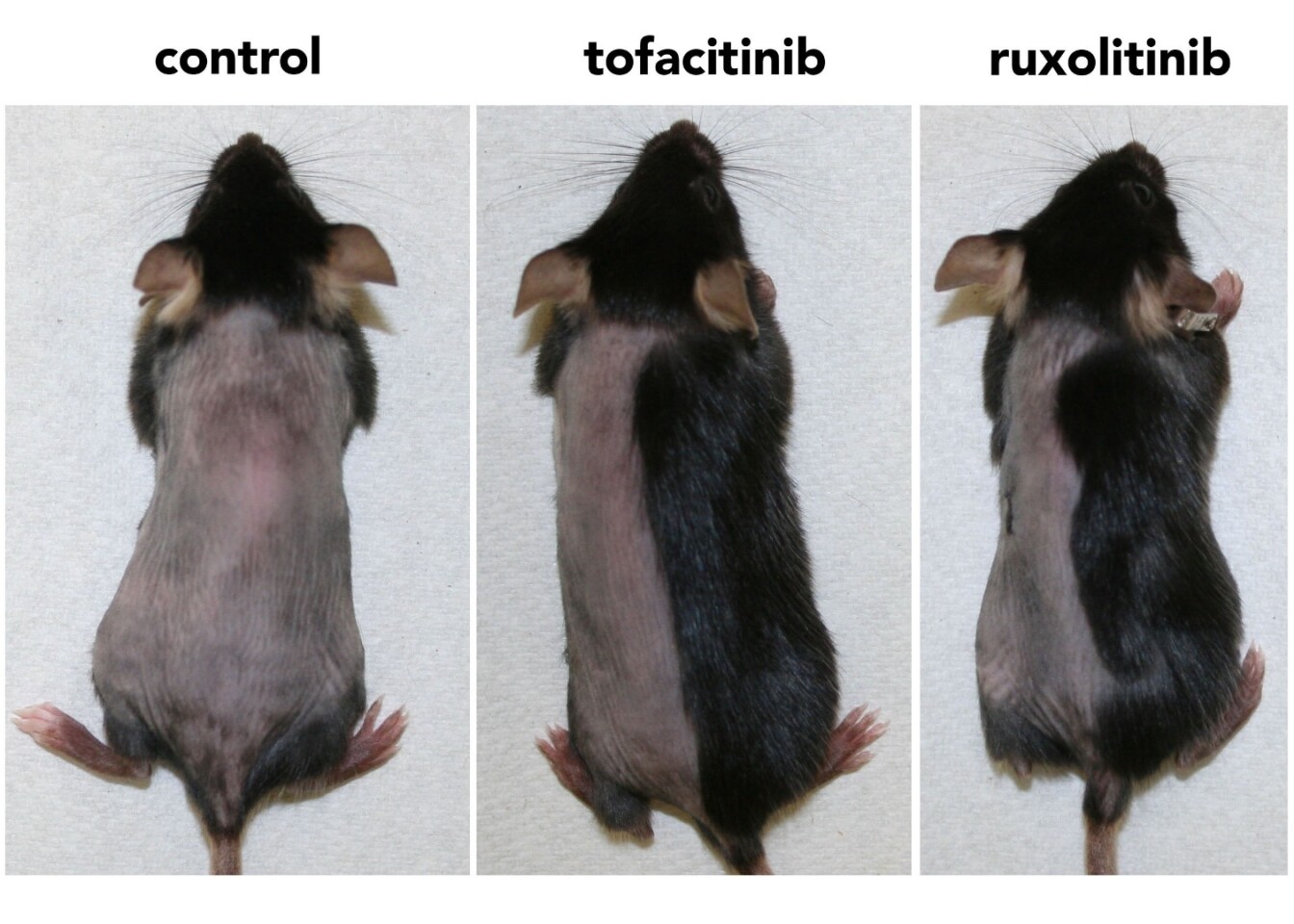Other than costly transplants, underperforming creams and less-than-convincing wigs and combovers, those experiencing hair loss aren't exactly spoilt for choice when it comes to addressing fading follicles. Over the years science has teased us with a number of promising developments, but none have yet evolved into market-ready saviours the bare-bonced among us are waiting for. New research suggests that a solution be on the horizon, however, with scientists discovering that blocking certain enzyme activity can treat certain kinds of hair loss, with bald mice treated in this way sprouting new hair within 10 days.
Last year, researchers at Columbia University Medical Center were looking at potential treatments for alopecia areata (aka spot baldness), an autoimmune disease that causes hair loss. The team was exploring the potential of drugs that inhibit a family of enzymes known as Janus Kinase (JAK) in hair follicles, finding that the drugs served to turn off the signal that triggers an autoimmune attack, and that when administered orally it could restore hair growth in some subjects.
But the research produced one other interesting result. Dr Angela Christiano realized that when the drug was applied to the skin, rather than orally or through other means, it more effectively promoted hair growth, suggesting that the JAK drugs where somehow directly interacting with the hair follicles in addition to preventing an autoimmune attack.
In its latest work, the team has filled in the blanks on its previous findings, establishing that the JAK inhibitors reawaken the hair follicles from their resting state. This mimics part of a natural process where hair follicles alternate between active and dormant phases. Normally the JAK family of enzymes places the follicles into this resting state. Therefore, by suppressing its activity, the drugs enable the hair stuck in this sleeping state to re-enter the active part of the cycle.

Applying the JAK drugs to the skin of bald mice over five days saw them grow new hair within 10 days, while the control group that went untreated remained bald. After three weeks of treatment, the researchers say the mice had regrown almost all of their hair. The approach also proved effective in producing longer hair from human hair follicles grown in culture.
"There aren’t many compounds that can push hair follicles into their growth cycle so quickly," says. Christiano. "Some topical agents induce tufts of hair here and there after a few weeks, but very few compounds have this potent an effect so quickly."
The two drugs used in the study are already approved by the US Food and Drug Administration, one for the treatment of blood diseases and the other for rheumatoid arthritis. While the researchers say it is likely they will act on the same pathways in humans as they do in mice, it is not yet known whether it will translate to a treatment for pattern baldness in time for Donald Trump's run to the White House.
"What we’ve found is promising, though we haven’t yet shown it’s a cure for pattern baldness," says Christiano. "More work needs to be done to test if JAK inhibitors can induce hair growth in humans using formulations specially made for the scalp."
The scientists say they have already begun research in this area with clinical trials underway for the two drugs for treatment of plaque psoriasis and alopecia areata.
The teams findings were published in the journal Science Advances.
You can hear from Christiano in the video below.
Source: Columbia University





